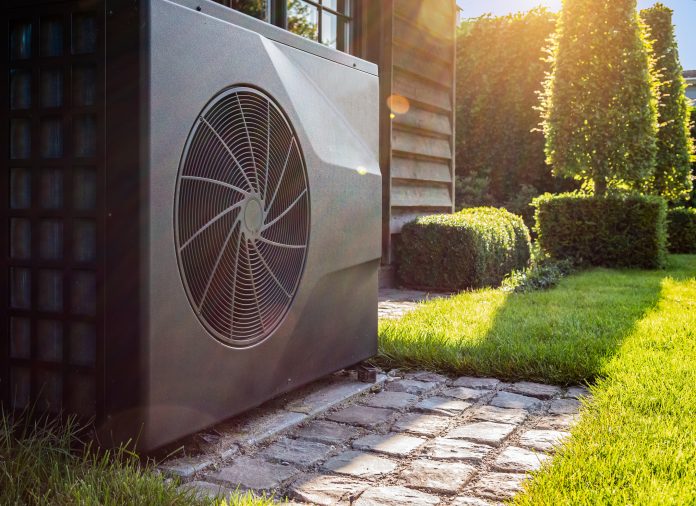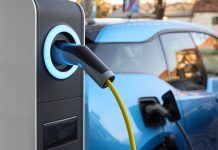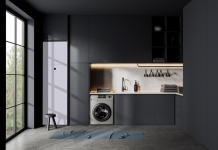Aoife Foley, Chair in Net Zero at The University of Manchester, assesses the pros and cons of getting a heat pump installed in this special energy focus
Heat pumps have been at the top of the news agenda over the past year or so, cited as an effective solution to combat rising energy bills.
However, it’s more complicated than simply saying that everyone should go out and get a heat pump installed straight away.
There are several factors to consider, ranging from the different types of heat pump available, the initial outlay and your current energy consumption.
How do heat pumps work?
Heat pumps may seem like a new phenomenon, but the technology used has been around in some form since the 1800s. It works in the same way as refrigeration and air conditioning, only in reverse.
Heat energy is taken from an outside source, such as the air, the ground or water, and transferred into the pump to heat water in tanks, radiators and underfloor heating systems.
This is referred to as space heating. In essence, it replaces your oil or gas central heating but can also cool your home and heat your water simultaneously.
The heat will then warm a liquid, typically a refrigerant, such as hydrocarbons, ammonia, carbon dioxide or water with a small amount of a refrigerant, which evaporates and move through a compressor, causing a temperature rise.
The heated gas can then be blown into a heating or hot water system – rather than out of it, as is the case in a fridge, thus cooling or heating your home via your radiators whilst heating your hot water.
Heat pumps can be used for individual small flats and houses to heat pools and sports facilities, commercial facilities and large industrial users in heat networks. So, heat pumps come in all shapes and sizes.
Electricity is still the primary source of energy used by a heat pump, but it is far more efficient in terms of its output. This is the unique selling point of heat pumps.
In the most efficient pumps, you can expect one unit of energy to produce three or four units of heat. This reduces how much energy you need to use, so you should cut bills and be more sustainable too.
On top of that, heat pumps can take unwanted electricity from variable wind and solar, nuclear and fossil fuels during times of the day when demand is low.
This is why we have seen significant growth in heat pumps across Europe and the world over the last decade.
What are the different types of heat pump?
There are three primary types:
- Ground source heat pumps extract geothermal heat from the ground, to heat or cool the refrigerant liquid and then drive the heat pump system. They are also called ground-to-water heat pumps.
- Water source heat pumps use heat from water in lakes and ponds to heat or cool the refrigerant liquid and then drive the heat pump system.
- Air source heat pumps use energy in cold or hot air from outside your home, or through a ventilation system to heat or cool the refrigerant liquid. These are often called air-to-water heat pumps. These behave just like a fridge, and so emit noise from the fan.
There are others, such as air-to-air, solar assisted and hybrid. We don’t see many of these in the UK.
Air-to-air is typically found in countries like the U.S. or Spain with significant summer cooling needs. Looking purely at the figures, water source pumps have the best input-to-output coefficient, as water is particularly good at storing energy.
There are two types, a closed and an open loop; the difference between the two is the volume and type of refrigerant liquid used.
But there are different considerations, including the cost of installation, running costs and kind of property.
The open is more efficient, but running costs tend to be higher.
Air source pumps are generally the cheapest and most straightforward to install and are most commonly used in smaller properties.
On the other hand, ground source pumps can be quite complicated to install, and you will need a reasonable amount of outdoor space, like a garden, which can take a pipe loop or a probe.
Are heat pumps cost-efficient?
As mentioned earlier, the heat output per unit of energy input can be as much as three to four times higher.
I don’t think we’ll likely see energy prices fall to the levels we saw before the war in Ukraine for the foreseeable future, so it is expected to keep paying dividends even when prices eventually fall from their current peak.
It is a long-term investment, so we need to consider the initial outlay of installing the system.
It will vary by the type of pump and the property, but they can be between £3,000 to as much as £30,000. So if you’re not planning to stay in your property for a few years, you might not really see the benefit.
You’ll also need to factor in maintenance in the same way you would a regular boiler.
It will generally have a lifespan of around 15 years, and there will be wear and tear along the way, but no more so than most gas boilers.
If you consume a significant amount of energy, then the bigger the saving will be proportionate. But if you typically don’t consume a considerable amount of energy, your savings might not justify the initial outlay.
Should I get a heat pump installed?
My best advice is to do your homework and work out the best solution for you. If you decide to proceed, it must be installed and serviced by a reputable provider.
You should check their accreditation and, if you’re unsure, speak to the local district operator to find out more. If it has not been installed correctly, many issues can arise afterwards.
The installation should be reasonably straightforward for most properties, but there are outliers, and like any heating systems installation, it can be inconvenient.
For instance, you may need planning permission for a listed building. Local authorities should be able to provide guidance. So, checking before you start the journey is critical to ensure a heat pump is right for you.
Ensuring your property is well-insulated will also be vital to getting the most out of your heat pump.
And don’t forget to read your system’s operations and maintenance instructions to have it running at its optimum and keep your bills manageable. In combination, all of these can significantly impact your energy usage.
Contributor Details
Editor's Recommended Articles
-
Must Read >> The road to net-zero requires heat pump technology













